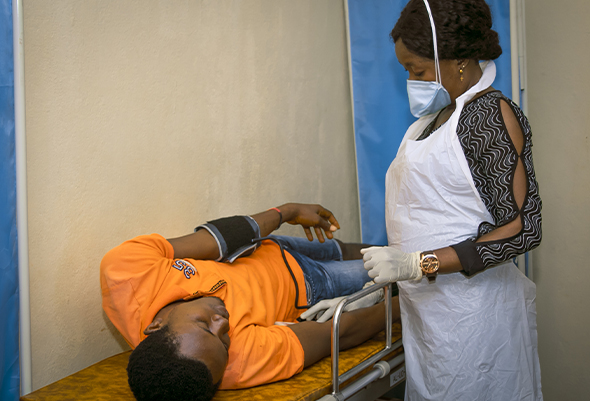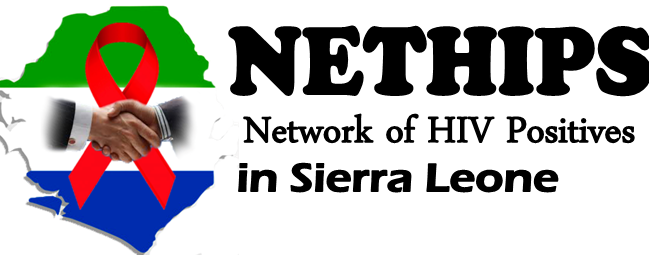Care and support is an important community service provided by NETHIPS. It facilitates immediate access to treatment when a person is diagnosed with HIV; to support adherence to treatment in order to attain viral suppression for people living with HIV, for the sake of their own health and to prevent infecting other people with HIV; to enhance the prevention and management of HIV-related infections; and to enhance coping with the challenges of living with HIV.
Support Group Activities
- Support group meetings: Support group meetings are held monthly. The meeting provides space for Recipients of Care to discuss quality of HIV services they receive, factors affecting uptake of HIV services, treatment adherence, health talk and how to live ‘positively’ with HIV. NETHIPS developed a support group guideline that is used by group coordinators during meetings. Additionally, resource materials including infographs are provided to support groups for health talks during support group meetings.
- Home Based care: Support groups provide home based care to their members with advance disease or are bedridden. This service is provided voluntarily to members as guided in the national home based care manual. Largely, home based care provided by support groups meets the psychosocial needs of their members to demonstrate solidarity. In particular, home based care include bathing clients, keeping their home tidy, prepare food for clients, support family members with referral arrangements to medical care, assist in looking after the children (for single parents) etc.
- Community ART Groups: Community ART Groups are formed within support groups to facilitate treatment uptake and adherence. The CAG is part of the community support system adopted by NETHIPS to rollout Differentiated Service Delivery at community level. CAGs play critical role during health emergencies and natural disasters to ensure that Recipients of Care access lifesaving services
- Support Disclosure of HIV: Disclosure of HIV status to loved ones is a psychological nightmare for persons newly tested positive to HIV. The support group provides space for clients to share their fears, learn from the experiences of others and also help them plan the right approach and timing for disclosure to their loved ones.
Community Engagement
- HIV Community Response Groups: The HIV Community Response groups were formed mainly in the Western Area urban and rural districts. Both districts combined have the largest number of health facilities in Sierra Leone. The HIV Community Response groups consist of community leaders or people of influence with ability to tackle HIV related stigma and discrimination, support referrals or linkage to care and enhance safety net for RoC in their communities.
- Awareness raising campaigns: Awareness raising campaigns form part of community engagement activities. Support groups engaged in awareness raising campaigns to tackle social factors like stigma and discrimination, promote HIV testing and treatment and community support for people tested positive to HIV.
Wellness center
- Family testing: The Wellness center provides counseling and testing services for family members who wish to know their HIV status. This is part of the national fast track approach to increase testing and treatment for people living with HIV.
- Index case testing:As umbrella organization for PLHIV in Sierra Leone, NETHIPS has organized recipients of care into support groups nationwide. Through health talks at support groups and counseling of individuals, Index cases are encouraged by the wellness center to share contacts of individuals who they have related with that may need to be tested
- Community Outreach: The wellness center engages in community outreaches to raise awareness on HIV testing and also provides counseling and testing services. During community outreach, people who test positive to HIV are immediately link to a health facility where confirmatory test is carried out and treatment is initiated
- Treatment Literacy: Treatment uptake and adherence remains a challenge among NETHIPS members in Sierra Leone. This is partly attributed to inadequate information, fear, stigma and mistaken ideas about the rights and responsibilities of recipients of care. In this regard, NETHIPS uses treatment literacy to dispel myths about HIV, provide psychosocial support , promote adherence and retention. Treatment literacy is done at support group meetings and also at individual level. During support group meetings, Peer Educators, social workers and health workers engage meeting attendees on various treatment related issues to ultimately enable them adhere to their life saving during. Similar approach is used at individual level for recipients of care who do not adhere to treatment. They are visited at home by their peers to provide them relevant information and experience on treatment and ways to live with HIV with less anxiety.

